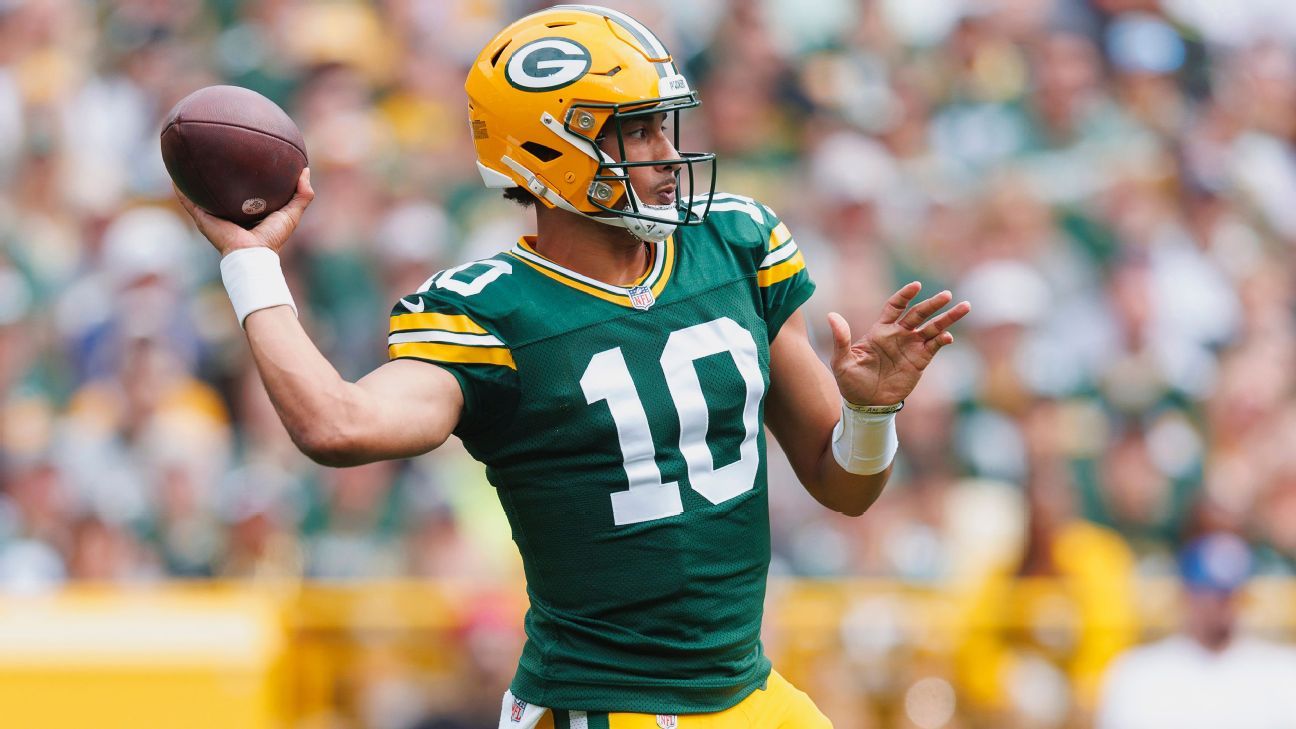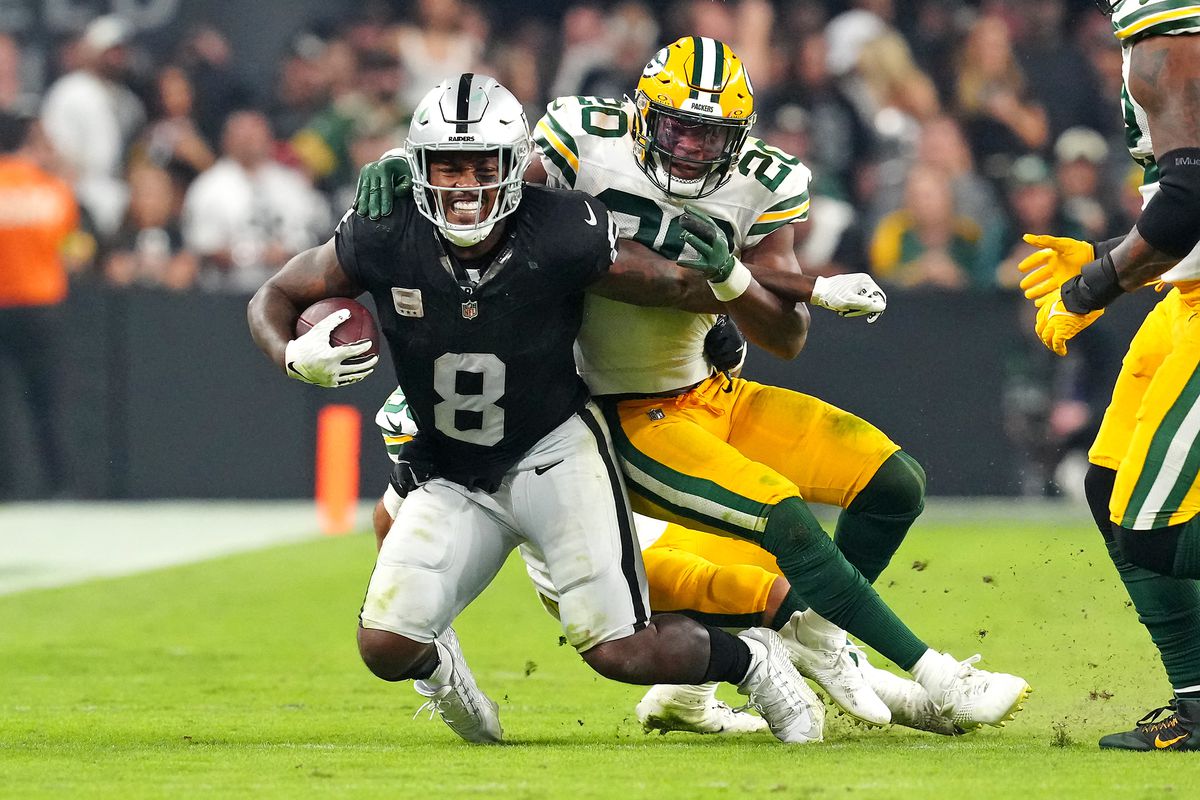In a move that’s raised eyebrows across the NFL landscape, the Green Bay Packers have placed a high-stakes bet on running back Josh Jacobs. By signing him to a hefty four-year, $48 million contract, the Packers have signaled a clear intention: they’re not backing down from investing in star power for their backfield.
This bold strategy defies the prevailing winds of Super Bowl history, which suggests a leaner financial model for the running back position may be more conducive to championship success.

Green Bay Packers Banking on Josh Jacobs
The Green Bay Packers’ offseason maneuvers have been nothing short of heart-wrenching. The team parted ways with Aaron Jones, a move that left many fans and pundits questioning the direction of the franchise. Jones, described by General Manager Brian Gutekunst as “the heartbeat of our team,” left big shoes to fill.
Enter Josh Jacobs, the former Las Vegas Raider, dubbed “the heart and soul of the team” by head coach Antonio Pierce. With such high praise from his previous tenure, Jacobs’ arrival in Green Bay is laden with expectations.
Josh Jacobs' last touchdown as a Raider definitely went out with a bang pic.twitter.com/qEsUHV0caI
— vegas (@vegastiming) March 15, 2024
Yet, the Green Bay Packers’ strategy bucks a trend that has taken shape over the last decade and a half. Super Bowl history since 2009 tells a tale of underdog running backs, not star-studded signings, playing pivotal roles in championship runs.
The Kansas City Chiefs, New England Patriots, and Philadelphia Eagles have all hoisted the Lombardi Trophy without breaking the bank on a running back. 14 out of the 15 champions since 2009 featured a leading rusher earning $2 million or less.
The NFL’s Evolving Running Back Landscape, From Stars to Supporting Cast?
The landscape of the NFL has undergone seismic shifts, particularly in how teams value the running back position. Once the linchpins of offensive strategies, names like Jim Brown, Walter Payton, and Eric Dickerson evoke nostalgia for a time when the ground game reigned supreme.
However, the advent of rule changes favoring aerial assaults has seen quarterbacks and wide receivers ascend to the throne, relegating running backs to a less exalted status.

This devaluation is reflected in the current salary structure across the league. In 2024, only five running backs will command salaries north of $10 million, a stark contrast to the 21 quarterbacks and 29 wide receivers earning similarly lucrative paychecks. Furthermore, the longevity of running backs remains a concern, with few managing to maintain elite production into their late 20s and beyond.
The Green Bay Packers’ High-Stakes Gamble: Will Josh Jacobs Pay Off?
Despite the historical precedent and evolving dynamics of the NFL, the Green Bay Packers have chosen to chart their course. Their investment in Jacobs represents not just a financial commitment but a philosophical stance on the importance of a dynamic running game. While skeptics point to recent history as a cautionary tale, Green Bay Packers decision-makers believe they can defy the odds.
The success of this gamble will hinge on several factors, not least of which is Jacobs’ ability to adapt and thrive in his new environment. Moreover, the Green Bay Packers’ overall team composition, particularly the performance of their quarterback and the effectiveness of their defense, will play critical roles in determining whether this bold strategy pays dividends.
As the 2024 season approaches, all eyes will be on Green Bay to see if the Green Bay Packers can rewrite the playbook to achieve Super Bowl glory. With Josh Jacobs at the helm of their ground attack, they’re poised to either vindicate their unconventional approach or serve as a cautionary tale for future franchises. Only time will tell if this high-stakes bet on Green will lead to gold.

Sources: Bleacher Report









